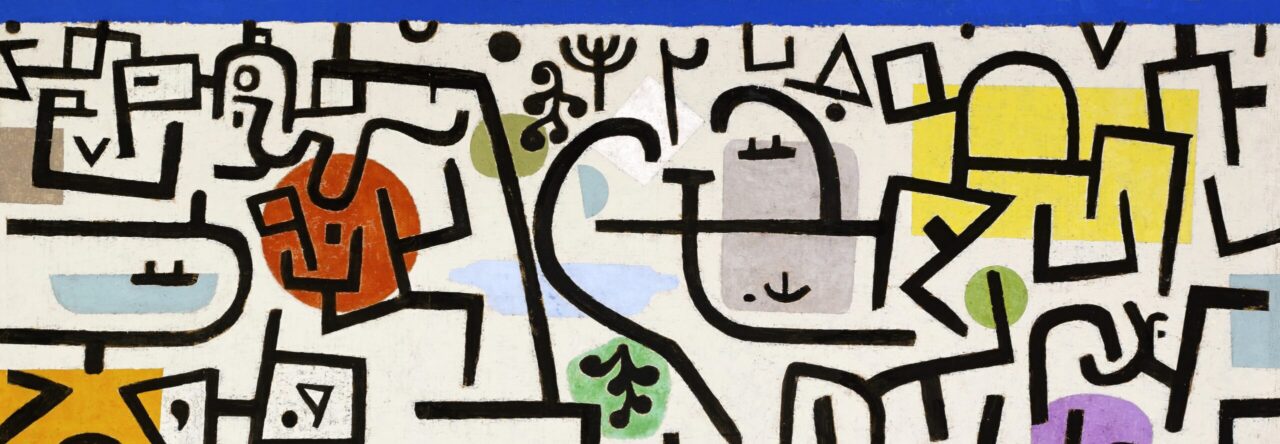Author: s2003448 Page 1 of 2
Fruitmarket Outing with Benoît Loiret, 27 January 2025
About the outing:
On Monday, January 27, at 12:10pm, let’s meet outside 50GS and walk together to the Fruitmarket Gallery to visit the exhibition currently on show: Barry Le Va, In a State of Flux. This wonderful exhibition weaves together reflections on sculpture, architecture, drawing, performance, and music through beautiful works.
About me:
Benoît is currently working on a PhD thesis devoted to the role of music in the critical works of French poet, translator, and critic, Yves Bonnefoy (1923-2016). He is also interested in contemporary art and has been working at the Fruitmarket for the past two years.
Barry Le Va – In a State of Flux
The first-ever major exhibition in the UK of the work of ground-breaking American artist Barry Le Va and the first comprehensive museum exhibition anywhere since his death in 2021.
Associated with process art and postminimalism, Le Va developed a challenging, inspirational sculptural practice over a fifty-year career. He was catapulted to fame as a completely unknown young artist by a cover story in the magazine Artforum in 1968. The photograph was a detail of one of his ‘distribution’ or ‘scatter’ pieces: felt fragments and shapes dispersed seemingly at random across the floor. In 1971, he made an installation for London-based gallerist Nigel Greenwood, laying neat lines of flour across the floor of a vast warehouse, then blowing it into evocative drifts of white with an air compressor to make, in his words, a ‘continuous expansion extended scale’.
The floor was Le Va’s primary field of exploration and operation, and this exhibition brings together some of his most important floor works made with glass, felt, chalk, wood and tape. He was interested in the potential of materials in their raw state, making works that hint at then unleash their latent energy.
A key theme in the exhibition is the dialogue in Le Va’s work between sculpture and drawing. Le Va saw drawings as revelatory of his thinking process, and while they help to re-install his sculptures after his death, they also function, as he wished them to, as ‘diagrams that function almost like musical scores or compositions’.
Le Va’s interest in transience, in sculpture as merely a short section of endlessly continuous time, has inspired generations of artists – from near-contemporaries such as Richard Serra to artists working now such as Karla Black. This exhibition is a rare opportunity to experience his work, to inhabit his material imagination in a way that was so important to him. For him, ‘the viewer always participates. They aren’t just an audience. They’re a participating member…’.
INADAPTATION: FOR A CO-HISTORY OF LITERATURE AND CINEMA
Wednesday, 6 November, 6pm
Under what conditions can we speak of an authentic shared history – or a co-history – between literature and cinema? While, traditionally, emphasis is put on the central figure of the writer-director, I will advocate the study of the processes of adaptability. In other words, a complex dynamic, which involves commercial, script-writing and critical considerations, but above all a continuous process, in which the abandonment of projects is not reduced to failure. At the intersection of literature and cinema, then, lies a vast field of mis-adaptations – texts in a variety of forms that are neither directly literature, nor directly cinema (because a film, as a work, only exists once it has been fixed in images and projected onto a screen). For reasons involving authors’ rights and discretion with regard to abandoned projects, this extraordinarily productive in-between area remains mostly inaccessible to us: the example of the successive mis-adaptations of Malraux’s La Condition humaine nevertheless will give some idea of its scope and interest.
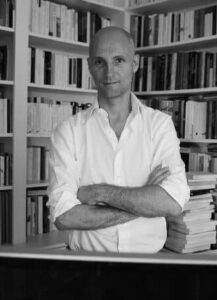
Prof. Jean-Louis Jeannelle (University Paris-Sorbonne) is a leading expert on the relations between literature and film, and on literary theory.
Fruitmarket Outing with Benoît Loiret, 27 September 2024
About the outing:
On Friday, September 27, at 4:30pm, let’s meet directly at Fruitmarket Gallery to visit the exhibition currently on show: Ibrahim Mahama, Songs About Roses. In this exhibition, Mahama explores the postcolonial history of Ghana through materials related to the old railway built by the British in the late 19th and early 20th centuries. Mahama’s practice is very intermedial; it includes drawing, collage, photography, sculpture, video, photography…
About me:
Benoît is currently working on a PhD thesis devoted to the role of music in the critical works of French poet, translator, and critic, Yves Bonnefoy (1923-2016). He is also interested in contemporary art and has been working at the Fruitmarket for the past two years.
Ibrahim Mahama – Songs about Roses
The first-ever solo exhibition in Scotland of the work of Ibrahim Mahama; a Ghanaian artist critically acclaimed for his evocative large-scale, site-specific installations that speak to the cultural and social effects of post-colonialism and global migration.
Born in Tamale in 1987, Mahama burst onto the international art scene at the 56th Venice Biennale in 2015 with Out of Bounds, a work that clad the massive outside wall of the Arsenale in jute sacks to make a visually spectacular and thought-provoking installation. The sacks were worn, torn and had lived several lives before ending up in the artworld: they were old cocoabean sacks, most recently used by charcoal sellers, many of whom had written their names on the sacks. Mahama obtained them by exchange, and the work set the tone for his on-going investigation into the life of materials and their dynamic potential – the sacks telling a visual history of the narratives of production and trade, and the more human tales embodied within.
At Fruitmarket, Mahama works with materials he has collected from the now obsolete railway the British built in Ghana in 1923 to transport minerals and cocoa around the then Gold Coast. Large scale charcoal and ink drawings, sculpture and film bring the materials, histories and ghosts of this defunct railway back to Britain, re-installing it on top of the railway here in Edinburgh.
Mahama wraps politics and protest into his materials and methods. His Fruitmarket exhibition is named for a song by Scottish band Owl John: ‘we don’t need songs about roses/Please sing me something new …we don’t need songs about roses/All that we ask for is truth’.’
Nina Six, ‘The Little World of Stella Benson’, Wednesday, September 25, 5:30 – 7pm.
Please come along to discover this fascinating dialog between the legacy of Stella Benson and the art of Nina Six, which is also a dialog between media, between women, and between cultures.
Nina Six on her project:
I am currently working on the graphic adaptation of the life of the English author Stella Benson (1892-1933) and her novel “Living Alone” (1919). Stella Benson was a writer closely associated with Virginia Woolf but unfortunately fell into obscurity after the war. She has written about the condition of women at the beginning of the 20th century, about war and about her travels. She was also a great poet and had an infinite love for dogs. My aim is to reintroduce her writing through the medium of comic books.
About the speaker:
Nina Six is a comic book author and illustrator. She was born in France in 1998 and has lived in Belgium for the last ten years. She is the author of Les Pissenlits (2022) and La Mousse (2024), published by Sarbacane. She illustrated the novel Alfred et les enfants oubliés (2023) published by Milan and the children’s album Monsieur Bigounia (2024) published by Sarbacane. She is currently working on a comic book retracing the life and work of English author Stella Benson (1892-1933), to be published in 2025.
This event is organised by the Centre de Recherches Francophones Belges in conjunction with Intermediality Studies.
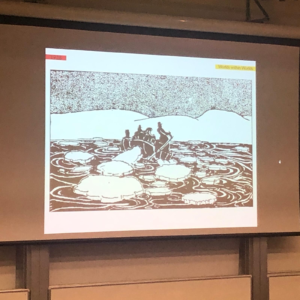
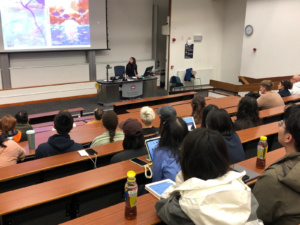
Dr Hideyuki Doi (University of Tokyo)
“Pasolini and Mizoguchi”
This lecture is part of a rich series of events, Pasolini and the Classics, organised by our colleague Emanuela Patti for Pier Paolo Pasolini’s 100th anniversary. See the full programme here).
When: Tuesday, 20thSeptember 2022, 4.30-6.00pm
Where: 50 George Square, 329
A surprising aspect of the relationship between Pasolini and Japan is the immediacy with which Japanese youth in the 1960s acknowledged the controversial poet and director and, perhaps more unusually, the reciprocity of the exchange. For example, Pasolini mentioned several times the name of Kenji Mizoguchi, often together with that of Kon Ichikawa: since the mid-50s the Japanese director Mizoguchi is in fact particularly dear to the European public. Furthermore, the direct references between the setting ofOedipus Rexand Japanese historical films are evident: to name one example, one could think of how the “barbaric” face of Franco Citti evokes the world of samurai depicted by director Akira Kurosawa, as well as the use of lights. As Pasolini himself pointed out however, Japanese criticism has hardly ever focused on certain affinities. So this time our presentation aims to underline the shared ambivalent mythic eye inherent in both Pasolini and Japanese writers and filmmakers.
Hideyuki Doi obtained a Ph.D. in Italian Literature at the University of Bologna and is currently teaching Modern and Contemporary Italian Literature at the Faculty of Letters of the University of Tokyo. In recent years his research has developed around the various expressions of the Italian and Japanese avant-gardes of the early 20th century. Among his works: Interlinee: studi comparati e oltre(Cesati, 2021);Guide to Modern and Contemporary Italian History (co-curator, Minerva, 2017, in Japanese); Esperienze friulane di Pasolini: cinque studi (Cesati, 2011).
Architects of Modernism: The Case of Proust
Professor Patrick O’Donovan (University College Cork)
When: Wednesday, 9th November 2022, 5:15 pm
Where: Project Room (1.06), 50 George Square
*Open to all, no need to register, but registration via Eventbrite appreciated to consider catering numbers.
Architecture is a model for modernist fiction, notably so in the work of Marcel Proust and of Virginia Woolf. Architecture is first of all a prototype for each writer’s work: architectural models are invoked as sources of far-reaching literary experiments. But architecture also forms a good deal of the substance of each writer’s work: each is concerned with the writer’s own space and what it represents, and then in turn with the forces that shaped the environments in which they wrote and on which they drew in elaborating their fictional worlds, spaces that testify to rapid urban growth, the rise of the railways and of tourism, innovative and sometimes disruptive forms of modern urban design, increased social stratification, elite sociability, the character of the city as a work of art. These strands will form the focus of the paper, in which, by way of a modest centenary tribute, I will also address some transformations of longer-term traditions in the relation between architecture and literature at Proust’s hands.
Patrick O’Donovan is Professor of French in University College Cork. He studied in Ireland, France and the UK, where he worked for a number of years, up the coast in Dundee and latterly in Cambridge. He is a former editor of the journal French Studies. He has published widely on literature and ideas since 1789, latterly on the poetry of Vigny, on the tradition of the personal novel in France, and on Certeau. His paper today draws on a current project dedicated to Proust’s ‘house of fiction’, on which he has also recently published.
Intermedial Journey in Search of the Bounty Mutineers
with French writer and artist Sébastien Laurier
When: Tuesday 31st January 2023, 17:15 – 18:00
Where: University of Edinburgh, 40 George Square, Room LG.11 (Lower Ground)
Sébastien Laurier is a writer, actor, theatre director and graphic novel scriptwriter. His work focuses on personal and poetical quests and enquiries which eventually become artistic objects, books, plays and exhibitions. These concrete utopias are an ode to travel, encounters but also intimate explorations (www.sebastienlaurier.com).
He will tell us about his experience of traveling to the Pitcairn Islands (South Pacific) in search of the traces left by, and ghosts of the Bounty mutineers in the eighteenth century, which led to the publication of his 2017 book La Bounty à Pitcairn. Mais que sont les révoltés devenus ? (Editions Zeraq). Sébastien Laurier is currently in the process of adapting this text into a series of graphic novels published by Editions Glénat in France and he will share with us his reflexions on the joys and challenges of intermedial adaptation.
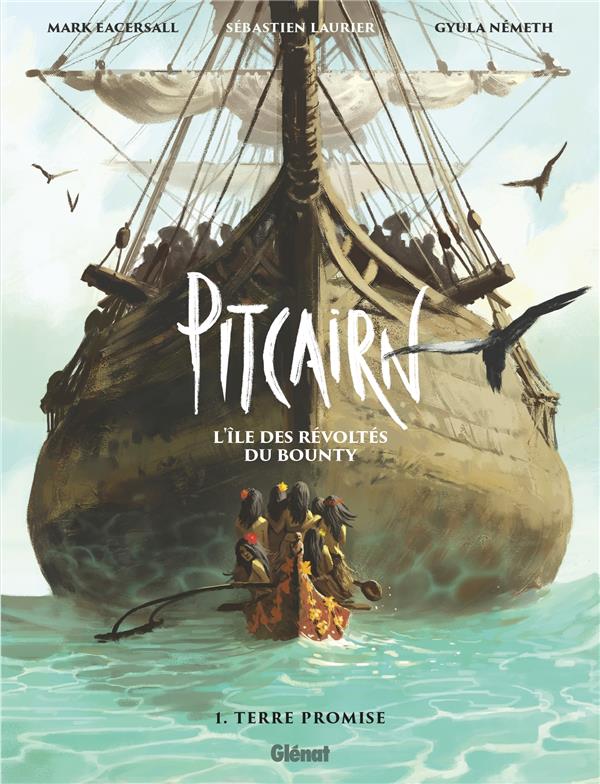
PITCAIRN, graphic novels (see the trailer)
LA BOUNTY A PITCAIRN, book (see a presentation)
MAIS QUE SONT LES REVOLTES DU BOUNTY DEVENUS?, theatre (see the trailer)
Event organised as part of the ‘Intermediality’ Research Strand at the University of Edinburgh, in partnership with the Institut Français d’Ecosse:
Contact: F.Arribert-Narce@ed.ac.uk
Riveder le stelle: Changing Perspectives in Early Modern Visual Culture
Inaugural Lecture of Professor Davide Messina
Wednesday 8th March 2023, 5.15 pm
Lecture Theatre G.03, 50 George Square
The debate on the apparent movement of the stars was crucial to early-modern astronomy, and it marked a new sense of reality in motion. The cosmological and the cognitive side of the debate were entangled. What was its reflection in the visual arts of the period? By addressing this question, which has surprisingly eluded scholarly attention, this lecture aims to show how early-modern images started to move and became self-aware.
To register your interest in attending the lecture please click the following link Inaugural Lecture: Davide Messina Tickets, Wed 8 Mar 2023 at 17:15 | Eventbrite
Professor Davide Messina obtained his PhD in Philosophy from the University of Bologna. He pursued his post-doctoral research in Italian Studies at Columbia University, New York, where he also became a Visiting Research Fellow at the Center for Comparative Literature and Society. He came to Edinburgh in 2007, as a Lecturer in Italian Studies. He was Director of the MSc in Comparative and General Literature from 2008 to 2011 and Head of Italian Studies from 2014 to 2020. He was appointed to the Chair of Italian and Comparative Studies in September 2019.
Professor Messina’s research is strongly interdisciplinary. It spans a broad range of topics and authors from the early-modern period to contemporary studies, engaging literary history and theory with cultural studies and the arts.
Intercultural Transfers and Translations Across Media
Third Workshop of the University of Edinburgh-Meiji University Research Partnership in Intermedia Studies
Friday 10th March 2023, 10.15 am – 3.30 pm
University of Edinburgh, Lister Learning and Teaching Centre (LLTC), Room 4.3
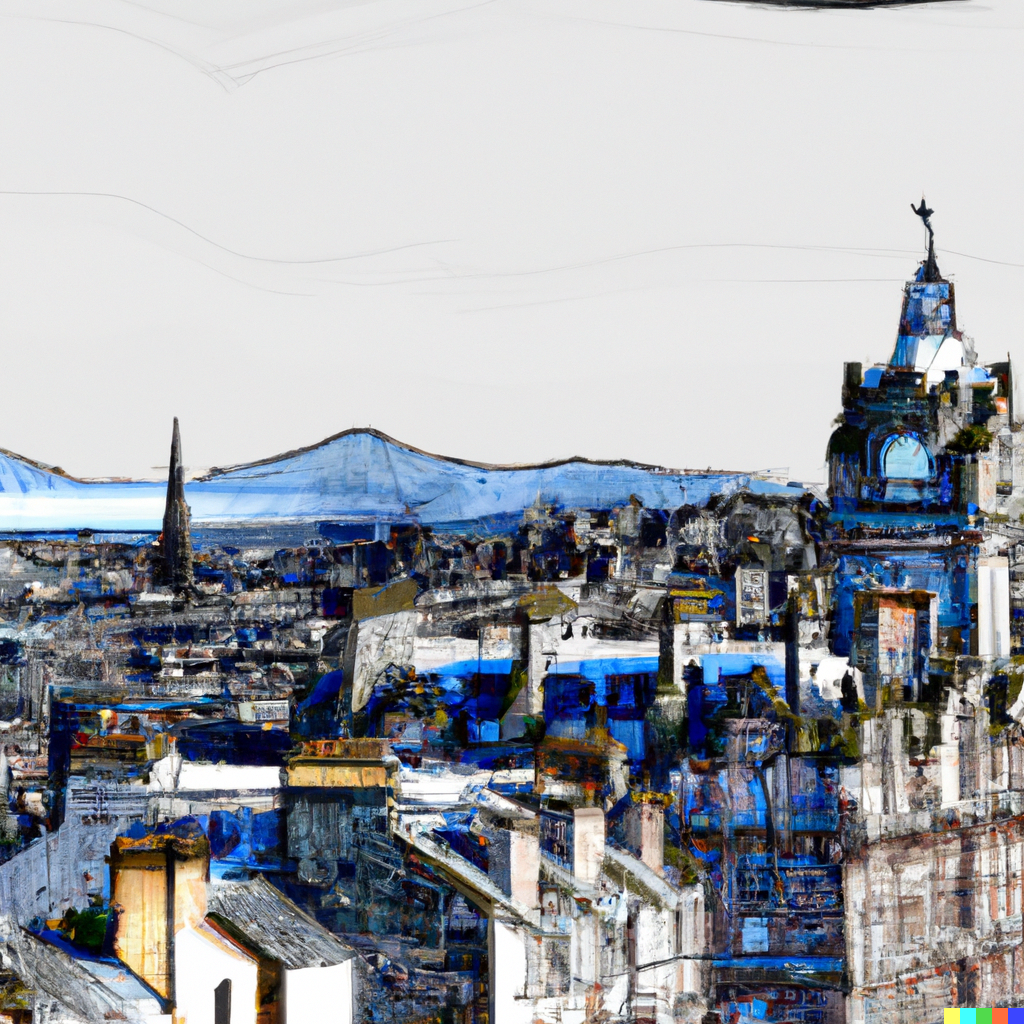
Kindly generated by the intemedial AI system DALL-E with the textual prompt ‘A landscape painting of Edinburgh in the style of Hokusai’
10:30am: Introduction, by Dr Fabien ARRIBERT-NARCE (University of Edinburgh)
10:35–12:00 Panel 1: Aesthetic Transfers and Translations between Image and Text
Rumiko OYAMA (Meiji University, Tokyo), ‘Translatability in Literary Texts: The Verbal and Visual Translation of “Japaneseness” in Kyoko Nakajima’s The Little House’
Xingtong ZHOU (University of Edinburgh), ‘(Anti)-Representational Politics: Photography in Yoko Tawada’s The Bath’
Katie PLEMING (University of Edinburgh), ‘Marguerite Duras’s Les Mains négatives and Photographic Theory’
13:10–14:10 Panel 2: Intercultural Transfers and Mutations Across Media
Alex WATSON (Meiji University, Tokyo), ‘The World in Miniature: Walter Benjamin and Phillip de Loutherbourg’s Eidophusikon (1781)’
Alexandra SMITH (University of Edinburgh), ‘Adaptation as Mutation: Michael Mayer’s Cinematographic Version of Chekhov’s The Seagull (2018)’
14:30–15:30 Panel 3: Shakespearean Adaptations
Masahiro KOBAYASHI (Meiji University, Tokyo), ‘Painting Shakespeare: John Millais’ Ophelia (1851-2) and Eugène Delacroix’s The Death of Ophelia (1834)’
Inma SANCHEZ-GARCIA (University of Edinburgh), ‘Queer Cinematic Shakespeare: Queer Futurity and the Contemporary Romeo and Juliet Short Film’
